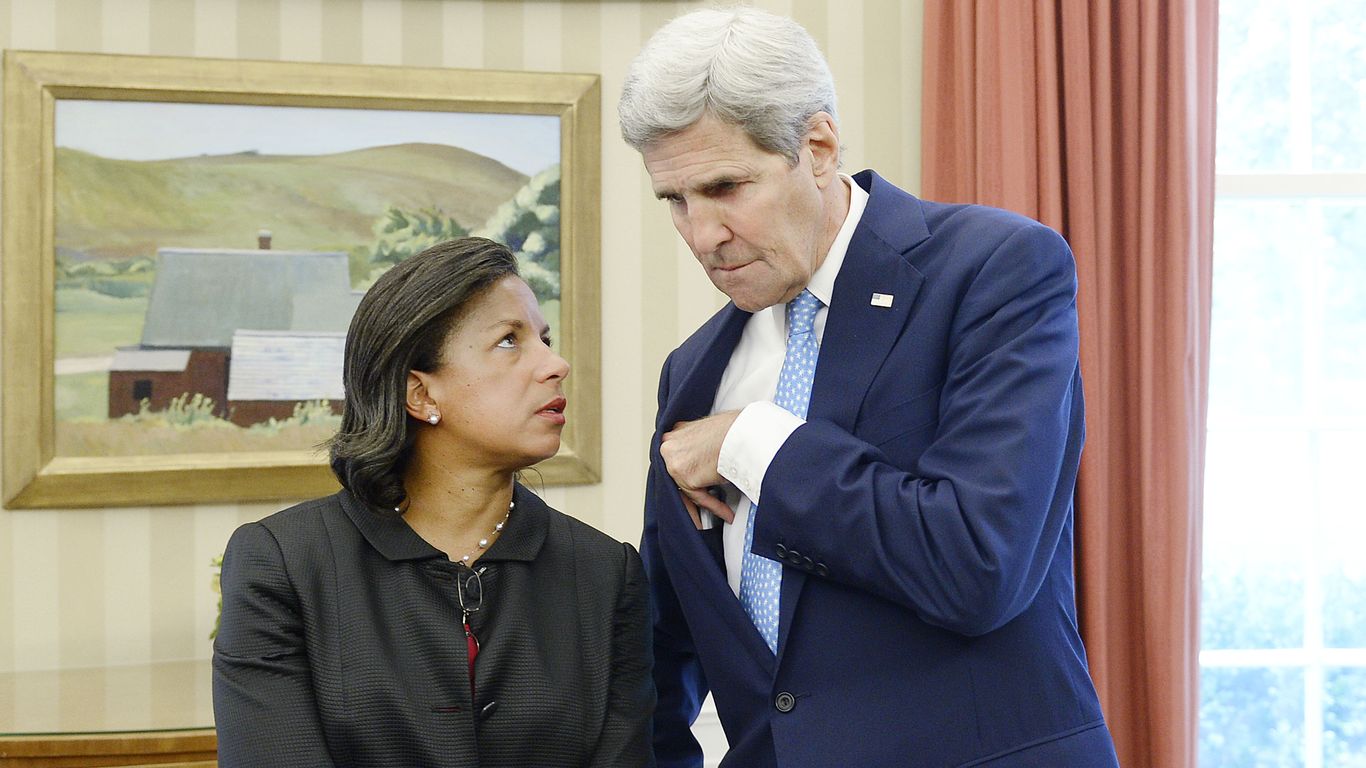
Members of Israeli Prime Minister Benjamin Netanyahu’s inner circle are concerned that President-elect Joe Biden is filling his administration with veterans of the Obama administration, some of whom have had troubled relationships in the past, especially with regard to Iran.
Why it matters: The governments of Biden and Netanyahu are on track for an early clash over the Iran nuclear deal. Several of Netanyahu’s aides at the Israeli National Security Council are grumbling that Biden will be surrounded by “Obama people” – including the deal’s architects and some of his fiercest advocates.
What they say: Israel’s outgoing ambassador to Washington Ron Dermer has told several Washington interlocutors that he is concerned about the impact John Kerry and Susan Rice will have on Biden’s foreign policy, an Israeli official and a US official said.
- Both Kerry and Rice will join the Biden administration, but their new posts have little to do with Iran or Israel. Kerry will be Biden’s climate czar, while Rice will lead the Domestic Policy Council.
- As Secretary of State, Kerry had a very tense relationship with Netanyahu, mainly over the nuclear deal with Iran and the Palestinian issue.
- As a national security adviser, Rice viewed Dermer as essentially a Republican political agent and once joked that she hadn’t met him because he was “too busy traveling to Sheldon Adelson’s Las Vegas events.”
The big picture: Relations between Barack Obama, Netanyahu and their respective staff were tense, especially during Obama’s second term. Biden’s new team is very similar to Obama’s at the time.
- But while Netanyahu’s aides are especially concerned about Rice and Kerry’s return, they have had fewer complaints about upcoming national security adviser Jake Sullivan and Biden’s choice to lead the State Department, Tony Blinken.
- A Netanyahu adviser told me he is less concerned about Kerry and Rice than Biden’s expected choice of Wendy Sherman as Deputy Secretary of State. Sherman was the lead US negotiator on the Iran deal.
Driving the news: Sullivan reiterated on CNN on Sunday that Biden plans to return to the deal if Iran is back into compliance, and then he will try to negotiate a broader deal. But Netanyahu won’t be Biden’s only headache trying to enforce those policies.
- Iran announced on Monday that it had resumed production of 20% enriched uranium, and Tehran has also threatened to expel nuclear inspectors.
- A Netanyahu government minister, Tzachi Hanegbi, said on Tuesday that Israel must respond to Iran’s enrichment move with a military attack on Iran’s nuclear facilities, “because the world is idly on the lookout”.
- The other side: The Institute for Policy and Strategy, a think tank led by retired Israeli General Amos Gilead, released a paper on Sunday calling for a peaceful dialogue with Biden’s government on Iran to avoid a public confrontation that could harm are for Israel.
What’s next: There are still no contacts between the Israeli government and the new Biden government, and it is unclear who will handle Israel’s outreach to Biden on Iran. One name that has been mentioned is Mossad director Yossi Cohen.
Worth nothing: A transition official for Biden said that Biden was “one of the strongest supporters of Israel” and that the Biden-Harris administration “will not only further strengthen the relationship between the US and Israel but also ensure that it has a bipartisan support. enjoy.” Dermer declined to comment on this story, as did Netanyahu’s office.
Go deeper: Biden’s nuclear deal dilemma